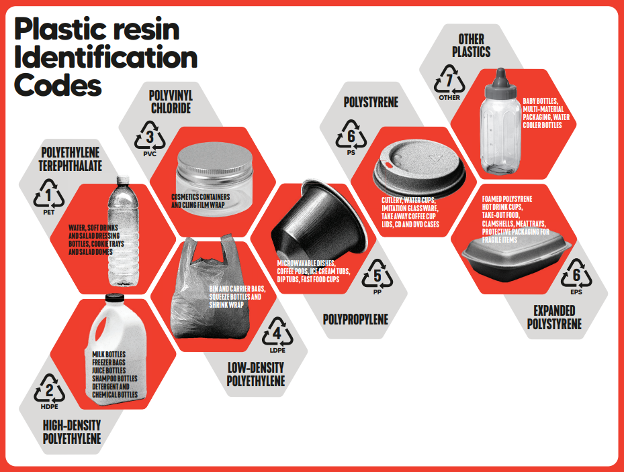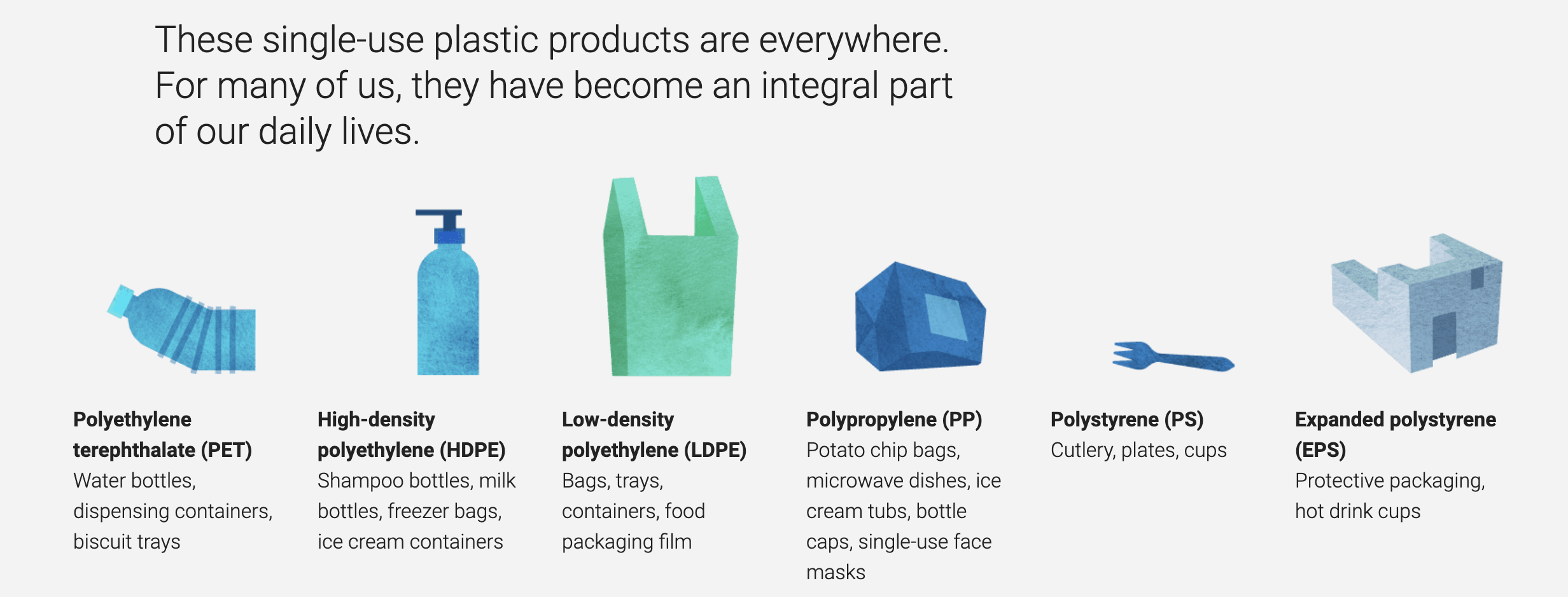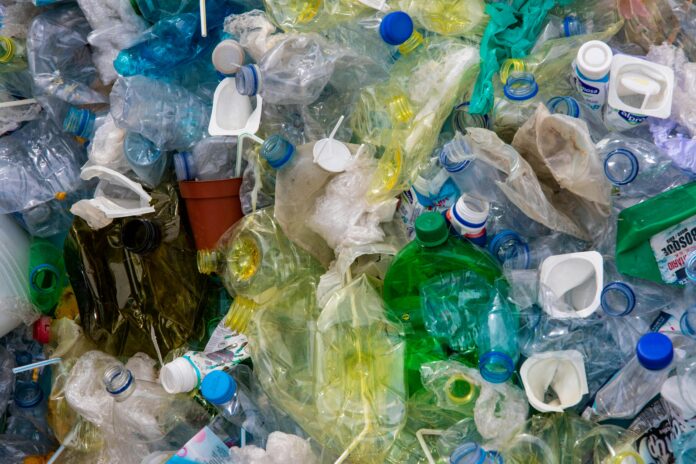Could you count how many single-use plastics you used this Ramadan?
In one week, I used 5 plates, 6 utensils, and 5 to-go containers for leftovers, all made of plastic. Of these, I deposited the to-go containers into a municipal recycling bin, and the rest were tossed in trash bags headed for a landfill. But where did those to-go containers go?
Fasting during the month of Ramadan raises awareness of our daily consumption; not only of food and water, but also of our consumption of the material world. Suppose we extend that mindfulness to the entire lifecycle of products we may use for just a few minutes. In that case, we can begin to reduce the amount of plastics that can end up in other countries where they pollute waterways and harm the health of people living there.
Just 5% of plastic waste is recycled in the U.S., which means the majority ends up in landfills or is exported to other countries.
Tasneem Islam
Even when plastics are placed in the correct bins, municipal material recovery facilities may still not recycle them. Plastics are not widely recycled in the U.S., the main reason being it is not economical to recycle lower grades of plastics. These lower grades are classified by their plastic resin identification codes as #3 through #7. These codes can be found on the bottoms of most plastic products.

When plastic items are not recycled back into a form where they can be used to make other products, it is estimated they can take up to 500 years to break down; however, they never fully disappear. Plastic products break down into smaller and smaller microplastics and nanoplastics that persist in our environment and can end up back in our bodies.
Given that the U.S. generates the lion’s share of plastic waste per capita in the world, our lack of plastic waste recycling infrastructure contributes to a global problem. Shipping containers carrying mixed plastic waste can be out at sea for months, which makes it among the dirtiest and least desirable waste in the trade.
China served as the world’s primary plastics importer until they banned plastic waste imports in 2017, which shifted the landscape of plastic waste trade around the world. In just a couple of years, the plastic waste we generated quickly made its way to other countries in Southeast Asia, turning rural agricultural lands into dumping grounds for the U.S. Some of the countries that import plastic waste from the U.S. today are Muslim-majority or have large Muslim populations including Malaysia, India, Indonesia, and Turkey. Investigative reports have found when plastic waste reaches these countries, none of which have the infrastructure to meet U.S. demands for plastic waste, the plastic waste is still not recycled and is ultimately left in open dumps or incinerated.
The practice of exporting waste for other countries to process and live amongst promotes waste colonialism – a term first conceptualized at the 1989 United Nations Environmental Programme (UNEP) Basel Convention.
Tasneem Islam
Since then, amendments to the Basel Convention and other UN-backed waste conventions have attempted to address the 21st-century problem of plastic waste colonialism, but the U.S. continues to be one of a few nations that have not ratified the Basel Convention.
Developed countries like the U.S. contribute to this global environmental justice problem, which disproportionately harms people living in poverty who receive, process, and ultimately live amongst this plastic waste, and face greater health and environmental inequities.
The UNEP estimates that half of the plastic products produced in the world are designed for single-use purposes, which include (in descending order): cigarette butts, plastic drinking bottles, plastic bottle caps, food wrappers, plastic grocery bags, plastic lids, straws and stirrers, other types of plastic bags, and foam take-away containers.

After assessing my plastic waste generation this Ramadan, I realized that the to-go containers (marked with a #5 plastic resin identification code) were probably not recycled in the U.S., and may already be in a shipping container overseas.
While disheartening, I quickly realized how much plastic waste I simultaneously avoided by carrying a reusable water bottle to every iftar and prayer. For next year, I will commit to also carrying a reusable utensil set and collapsible to-go container, which can double as a plate.
I’m committing to making these changes to reduce my contribution to plastic waste colonialism. Will you join me?
Tasneem Islam



